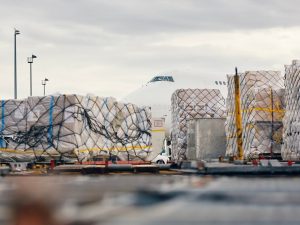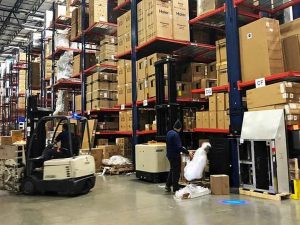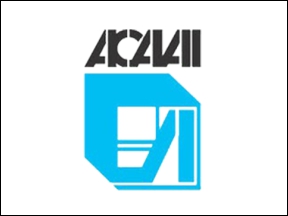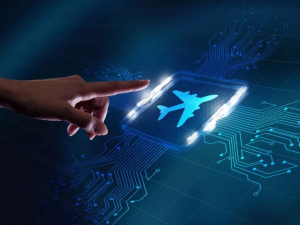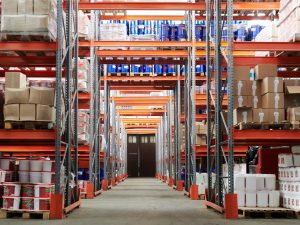Worldwide Flight Services (WFS) has achieved Cargo iQ’s quality standards certification for its air cargo handling operations in Europe, the Middle East, Africa & Asia (EMEAA). The accreditation covers some 50 major airport stations in India, Belgium, Denmark, France, Germany, Ireland, Italy, the Netherlands, South Africa, Spain, Sweden, Thailand, and the UK. Developed by the industry, Cargo iQ’s Master Operating Plan (MOP) describes the standard end-to-end process of transporting air cargo and introduces standardised performance monitoring for the duration of shipment movements from consignor to consignee. For WFS and other handlers, this incorporates key export milestones such as shipment acceptance into the warehouse, confirmation that shipments are ready for carriage and have been manifested and departed. Using Cargo iQ’s quality processes for imports includes receipt of the cargo off the flight, notifying freight forwarders that goods are available for collection, and then completion of delivery to the agent. To be certified, companies must provide evidence that Cargo iQ’s MOP is embedded in their operations, as well as how they manage reporting, and look to continuously improve performance standards.
Read More »BENZ unveils its 3rd warehousing facility in Manesar, Haryana
BENZ Packaging has announced the launch of its third manufacturing facility in Manesar, Haryana, further scaling its production capabilities to serve the growing demand in heavy machinery packaging and long-term preservation solutions. Spread across 11,000 square feet (2,200 square yards), the state-of-the-art unit is equipped to manufacture a wide range of heavy-duty packaging products including nail-less boxes, pinewood boxes, industrial skids, and wooden pallets. The facility complements BENZ’s existing infrastructure, enhancing its ability to deliver fully integrated, durable, and export-compliant packaging systems. “This expansion marks a strategic step in our growth journey,” said Manan Chopra, Director at BENZ Packaging. “Manesar’s proximity to key industrial hubs and logistics corridors will allow us to serve our clients with greater speed, flexibility, and technical precision—especially in sectors like engineering, renewable energy, and heavy machinery exports.” With a focus on long-term preservation and corrosion prevention, the Manesar facility will also support BENZ Packaging’s robust portfolio of moisture-control solutions, including VCI-based packaging, desiccant integration, and export-grade wood treatment. These solutions are critical for clients shipping large equipment across diverse geographies and climate zones.
Read More »ACAAI to host 49th annual meet in Bali from 6-9 November
Block your calendar for the country’s biggest air cargo event, the Air Cargo Agents Association of India’s (ACAAI) 49th annual convention, all set to be held from 6-9 November 2025 in Bali, Indonesia at Renaissance Bali Uluwatu Resort and Spa. C K Govil, President, ACAAI shares, “It gives me immense pleasure to announce that the 49th ACAAI Annual Convention will be held in the enchanting island of Bali, Indonesia, from 6th to 9th November 2025. Bali, with its rich culture, warm hospitality and world-class infrastructure, promises to be the perfect setting for meaningful dialogue, networking and collaboration within our air cargo and logistics fraternity. I invite all our members and stakeholders to join us in this landmark event as we continue to explore new horizons and strengthen our collective vision for the future of Indian air cargo.”
Read More »‘Prolonged diversions increasing transit times, costs’
Kamal Jain, Director, Cargomen Logistics said, “The ongoing Iran-Israel conflict and regional airspace closures will have a lasting impact on Indian air cargo. Prolonged diversions will increase transit times and air freight costs, especially for time-sensitive goods like pharma and perishables. Exporters may shift to multimodal options like sea-air via Dubai or Singapore. Congestion at Indian airports is likely, affecting reliability. In the long term, businesses will diversify routes and target alternate markets. The situation will also push policymakers to invest in resilient air corridors, develop alternate hubs, and strengthen aviation treaties to ensure continuity in trade and reduce vulnerability to geopolitical disruptions.”
Read More »Shiprocket, Fynd unite to boost last-mile deliveries
Shiprocket has announced a strategic partnership with Fynd to boost Shiprocket’s courier aggregation and ecommerce intelligence directly into Fynd’s Order Management System (OMS), improving last-mile fulfilment for growing D2C brands with the power of automation and AI-driven logistics. With this partnership, Fynd will also integrate Shiprocket’s logistics provider aggregation services, including courier selection, price comparisons, and order tracking, enabling brands on Fynd to fulfil orders using Shiprocket’s logistics partners. The service is already live for over 300 active D2C brands on Fynd’s OMS, With Shiprocket’s network of logistics providers, the partnership is expected to improve delivery timelines, especially in Tier 2 and Tier 3 markets, and enhance customer satisfaction. The API-based integration enables seamless syncing of order data, AI-driven courier selection, and order tracking—all within Fynd’s dashboard. Shiprocket’s technology stack provides brands access to broader pin code coverage, an open, intelligent ecosystem, and the operational flexibility to meet customer demands. Fynd’s AI-native operations and Shiprocket’s intelligent logistics provider allocation system will bring greater automation to the order fulfilment journey. “This partnership brings logistics automation and delivery optimisation to the fingertips of Fynd’s brand ecosystem. At Shiprocket, we’re focused on building the infrastructure that enables India’s brands to scale faster and serve customers better, especially in Tier 2 and 3 cities. Partnering with Fynd brings that vision to life for hundreds of growing D2C businesses,” said Atul Mehta, Chief Executive Officer (Domestic Shipping), Shiprocket.
Read More »‘Iran-Israel air space stations closure impacting perishables trade’
Sunil Kohli, Managing Director, Rahat Cargo says, “The closure of air space stations due to air strikes between Israel & Iran have resulted in the carriers to plan their flights via circuitous route which in turn results in higher consumption of fuel leading to the higher freight pricing especially in regard to the airfreight volume from India to Europe and West Asia. Furthermore, the Indian cargo industry is likely to face a difficult situation because of the delay in carriage due to longer routes especially in respect of perishable shipments and pharmaceutical products. Iran airspace closer has badly affected perishable cargo pan India outgoing/ incoming as many flight all over either canceled or diverted.”
Read More »IWS to focus on automation, drones & sustainability
The India Warehousing Show (IWS) 2025, is all set to be held from June 26 to 28, at YashoBhoomi, IICC, Dwarka, New Delhi. It will focus on automation & robotics, smart storage systems with IoT & AI, MHE Innovations, energy-efficient, green warehousing solutions and drone technology. The theme is ‘Smart, Scalable, and Sustainable Supply Chains.’ This year’s edition focuses on empowering businesses with cutting-edge warehousing, logistics, and automation solutions. The show brings together the entire supply chain ecosystem to explore real business opportunities, emerging technologies, and collaborative growth. The conference will focus on strengthening India’s warehousing and logistics sector through innovation, collaboration, and policy alignment. In addition, the show offers: Power-packed panel discussions, thought leadership sessions on automation, infrastructure, and cold chain and VIP Lounge access to facilitate networking among top-tier professionals.
Read More »‘System integration, data security, lack of skilled workforce to manage digital tools’
Vipin Vohra, Chairman, Continental Carriers said, “Despite rapid digital advancement, many logistics players remain hesitant to fully embrace technology. Key reasons include high implementation costs, especially for MSMEs, and a deeply entrenched traditional mindset that favours manual, tried-and-tested processes. There’s also apprehension around system integration, data security, and a lack of skilled workforce to manage digital tools. Moreover, the perceived disruption to ongoing operations often deters decision-makers. While larger firms are adopting tech for visibility and efficiency, widespread transformation requires a cultural shift, supportive policies, affordable solutions, and industry-wide collaboration to build trust in technology as a long-term value enabler.”
Read More »‘Apart from cost, businesses must consider training, maintenance & upgrades’
CK Govil, President, ACAAI said, “The logistics industry is the engine of global trade, yet it remains one of the slowest to fully adopt modern technology. While high costs and a traditional mindset are often cited as the main reasons, the reality is a combination of multiple, interrelated factors that continue to delay widespread digital transformation. Cost is certainly a major concern. Implementing technologies like Transportation Management Systems (TMS), Warehouse Management Systems (WMS), real-time tracking, artificial intelligence, or blockchain solutions often requires significant upfront investment. For small and medium-sized logistics firms — especially in developing countries — these costs are seen as a burden rather than a long-term investment. In addition to installation, businesses must consider training, maintenance, and upgrades, further adding to the perceived financial strain. Equally significant is the traditional mindset prevalent in many logistics organizations. A large portion of the industry is built on family-run or legacy businesses that have operated successfully using manual systems for decades. Change, especially technological, is often viewed as risky or unnecessary. This “if it’s not broken, don’t fix it” mentality creates strong resistance to innovation. However, limiting the hesitation to just cost and culture oversimplifies the issue. A less visible but equally important challenge is the lack of digital literacy and awareness. Many business owners and operational staff do not fully understand how modern technology can improve efficiency, reduce errors, and enhance customer satisfaction. Without this understanding, there’s little motivation to explore digital solutions. The fragmented nature of the logistics industry also poses a challenge. With thousands of independent operators — from transporters to freight forwarders — standardizing systems becomes difficult. Without interoperability across platforms, adopting technology in isolation can feel …
Read More »‘Legacy process dependency and limited digital literacy slow down adoption’
Kamal Jain, Director, Cargomen Logistics said, “The hesitation in adopting technology in logistics stems from both cost concerns and a traditional mindset. While larger players may have the resources, many SMEs fear high upfront investments and uncertain ROI. Legacy process dependency and limited digital literacy also slow down adoption. However, with rising compliance requirements and increasing volume handling demands, technology is no longer a choice—it’s a necessity. It is essential for visibility, speed, accuracy, and staying competitive in a dynamic global supply chain environment. It is advisable Adopt affordable, modular tech solutions, enhance digital literacy, promote ROI-driven models, and foster a change-ready culture through phased implementation—making technology adoption practical, scalable, and aligned with compliance and growth needs.
Read More » Cargo Breaking News
Cargo Breaking News
